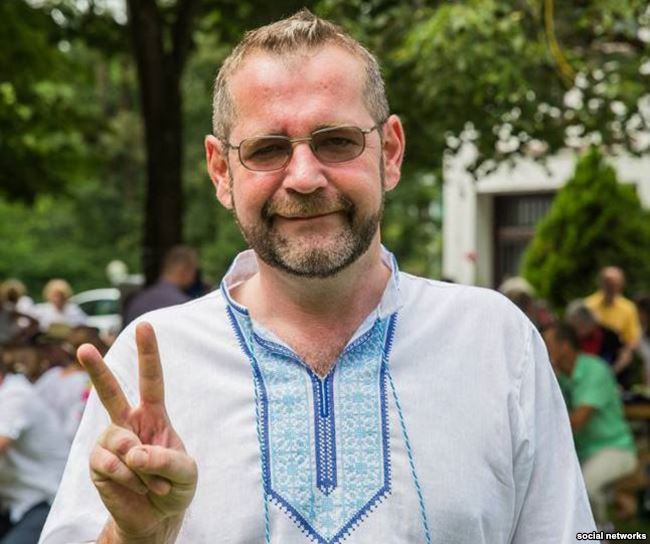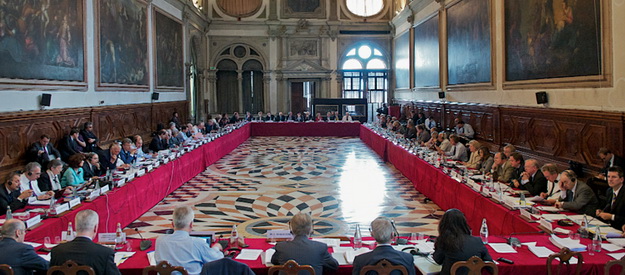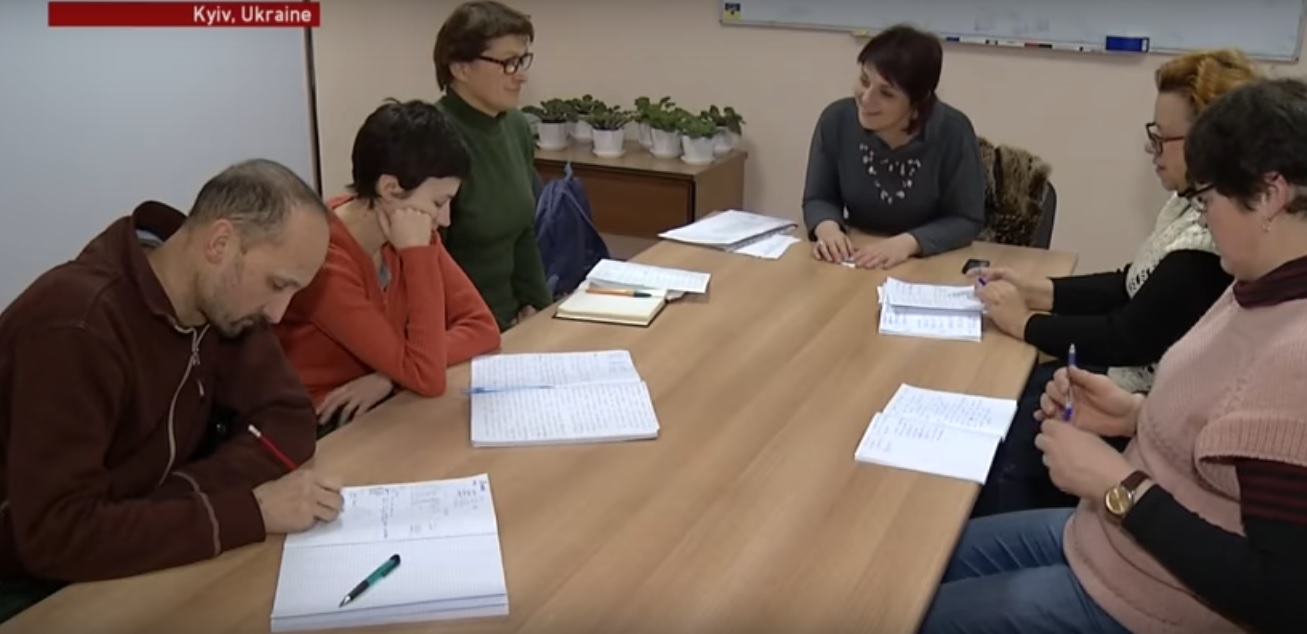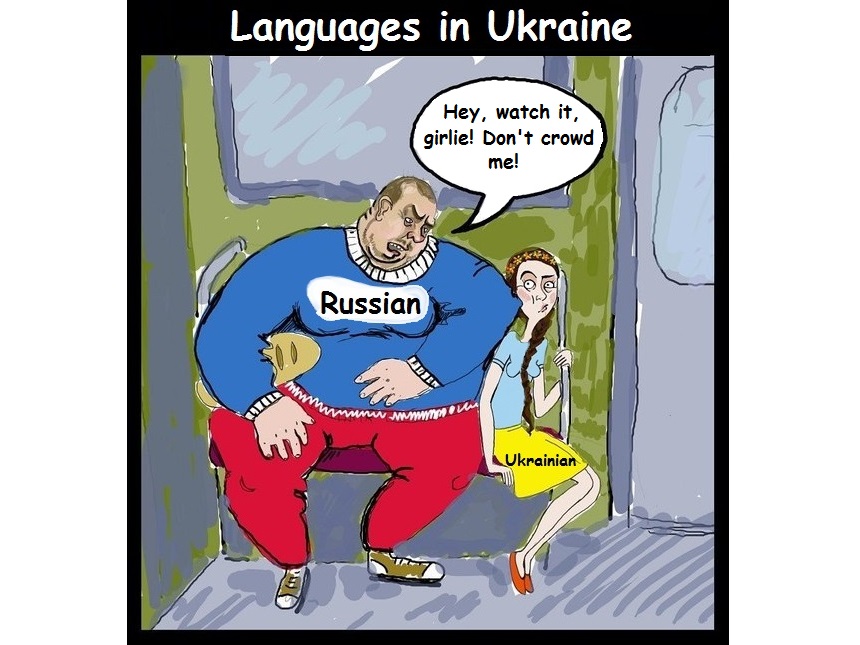Professor Moser talks about the current situation of Ukrainian studies, disciplines and centers in the West and East.
- It’s quite telling to analyze the status of Ukrainian studies at various universities. In fact, there are very few centres offering Ukrainian studies. We won’t mention Poland as Ukrainian studies are quite popular there. Let’s look at the Western countries, for example, Austria, Germany, France or the UK. There are only a few students… in fact, very few students. They’re usually former students of Russian, those who want to broaden their horizons and learn more. They’re eager to learn and absorb more.
- Is it a question of demand and supply? What factors influence the number of students who wish to study Ukrainian, or the availability of faculties and professors who would be able to teach such courses?
- The situation is interesting. Let me tell you about the situation at the University of Vienna – after all, I know it best. We have two literature professors that specialize in Ukrainian studies. I work there, of course, but I don’t have many students. So, who’s responsible for that? Professionals working in the field of Ukrainian studies? I don’t think so...
Students? I doubt it. We’re able to influence some of them and persuade them to study Ukrainian, but most of them come to us from Russian or Polish Studies.
On the one hand, it’s actually quite logical. I mean, Russian is widely spoken in many eastern countries. On the other hand, who’s really responsible for the fact that there are so few students studying Ukrainian?
I’m sorry to say that the fault lies with the Ukrainian people themselves. If Ukraine were Ukrainian-speaking, there would probably be more students eager to learn Ukrainian. When and if Ukraine creates such a country where you must know the Ukrainian language to communicate, then, of course, there will be more people willing to learn the language for many other reasons.
You know, Ukrainian studies are not just dedicated to linguistics or literature. It’s all about the business world, political and diplomatic relations, the economy, etc. I don’t condemn anyone, and I know very well that the problem is connected with the past. Of course, it’s a post-Soviet phenomenon, but it’s time to change.

- What are the best centres of Ukrainian studies in the world?
- Most of them are the old traditional centers that have been around for a long time. In North America, it’s the Canadian Institute of Ukrainian Studies in Edmonton and Toronto, and the Harvard Institute of Ukrainian Studies in Cambridge, USA. These centers are closely linked to the particular history of Ukrainian communities in North America. They have donated and still donate a lot of money to build up such powerful research institutions.
The centres in Europe are smaller. For example, a Ukrainian Research Institute was recently opened in Cambridge, UK, but it’s a very small college and, if I’m not mistaken, there’s only one professor of Ukrainian working there. There are also several individuals in the UK who work in the field of Ukrainian. The same applies to France. As for Switzerland, I should mention the University of St. Gallen separately because a professor of Ukrainian there launched a great project that united historians, literary critics, and linguists, which has given us new works on, for example, the history of Ukrainian literature.
There are a few individuals working in this field in Germany plus the State University of Greifswald... but that’s a separate story. We’re just happy that Ukrainian studies managed to survive there, because all the courses were threatened!
And, of course, there’s the Ukrainian Free University in Munich. It’s a completely different institution as it caters to Ukrainian students studying in Germany. And there’s Italy, where several scholars have managed to attract students and popularize Ukrainian studies. It’s a relatively strong field of study in Italy. Finally, Vienna… it’s an important centre of Ukrainian studies, I think.
- You’re head of the International Association of Ukrainian Studies, so you’re also in charge of what’s happening in the eastern countries. What’s the situation in Russia?
- I know that there are some people who are involved in Ukrainian studies in Russia. They’re theoretically associated with the International Association of Ukrainian Studies. However, for various reasons, which I don’t want to talk about today, I don’t have any contact with the official representatives of the Russian association. It’s a very touchy political issue.
- Do you see any results of their work in Russia? Are there any books, presentations, reports?
- No, I don’t see anything in philological sciences. Maybe they’re out there… somewhere, but I haven’t seen any. However, I know some serious work has been done in the field of history.
- How do members of the International Association of Ukrainian Studies respond to propaganda coming from their Russian colleagues?
- If it’s an article, some sort of publication, then we must respond… because there’s so much rubbish out there that’s not even worth mentioning. But, if it’s a serious article and we see some difficult points, we usually publish a review. We try to write a critical review and publish it in a major international journal so that we reach as many people as possible. If it’s, say, a conference, we take part in the discussions because our arguments are stronger. If the audience is well versed and educated, we can uphold and prove our ideas and the situation becomes more favourable to us.




